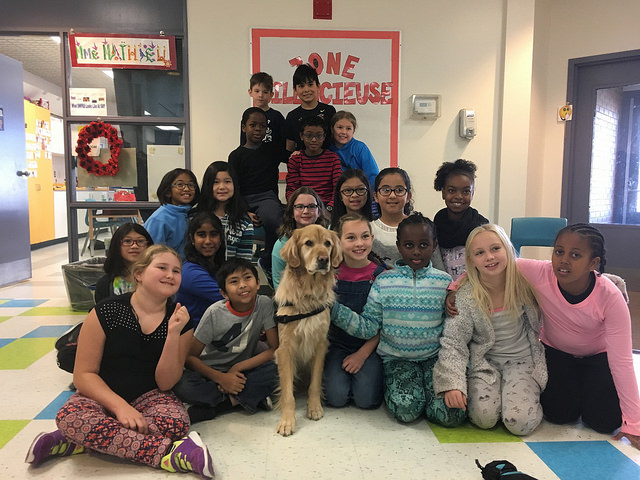May 31, 2018
Bilingualism and Beyond
One of the happiest days in my work life was in 2014 when the OHS was finally in a financial position to hire a Humane Education Coordinator to deliver our education services in French. It was the fulfilment of a promise I had made to a supporter years before, and I was delighted.
Since then, the OHS has made very significant strides in our ability to provide French services. Each year, we translate more and more of our materials as a part of our translation plan. And last year alone, we reached an amazing 4,606 children and young people in French with our programming — representing 25% of all those we reached last year.
I am contacted from time to time from supporters who believe that everything we do and everything we produce at the OHS should be done in English and French. We have always, of course, ensured that clients with immediate needs, such as those relinquishing or claiming a pet, or those contacting us with urgent questions, can be served in French. But while I am sympathetic to those wanting the OHS to be 100% bilingual, I know that the resources that would have to be redeployed to translation from care and programming would be ruinous, as the cost of this is enormous and the ultimate cost in animal lives unacceptable. So, we have found compromises and have adopted a less comprehensive, but I think reasonable, approach to growing our bilingual capability.
When the board came to develop our current strategic plan three years ago, it recognized that, given the diverse make-up of our community, communicating in English and French alone was not sufficient. Ottawa is no longer simply a French-English community. It is far more diverse than that. The plan recognizes that the OHS needs to better reflect the linguistic and cultural make-up of the community we serve. And so we consulted with groups in Ottawa who are serving Newcomers to Canada and from this are developing programs and partnerships to help them to navigate Canada’s pet culture and unique wildlife, ultimately to the benefit of animals and the Newcomers.
And I am as happy about this next phase of our evolution and the development of animal welfare in our community as I was in 2014 when the OHS finally broke our bilingualism barrier.
Bruce Roney
Executive Director

